Find Help
More Items From Ergsy search
-
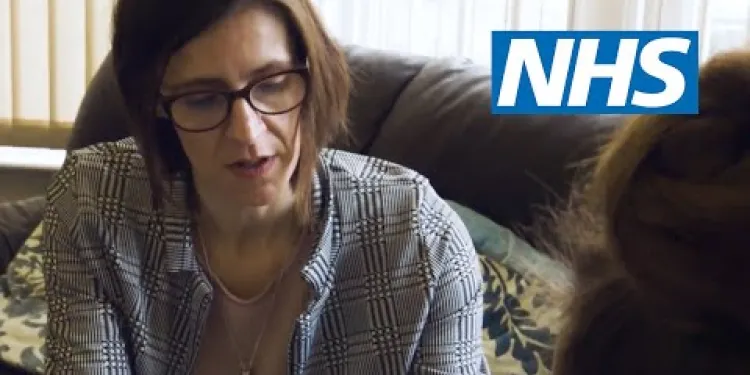
Talking about self-harm | NHS
Relevance: 100%
-
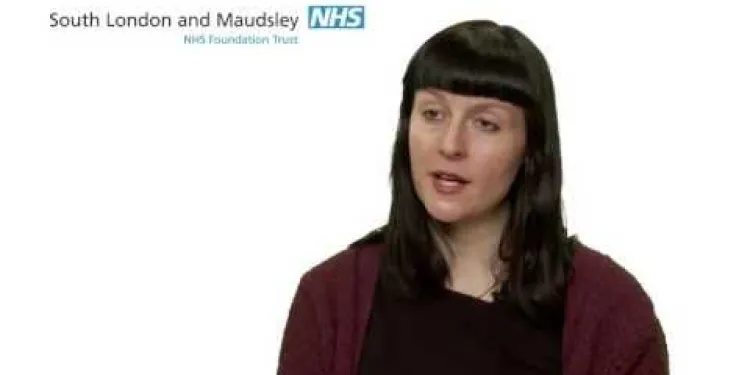
Self Harm
Relevance: 49%
-
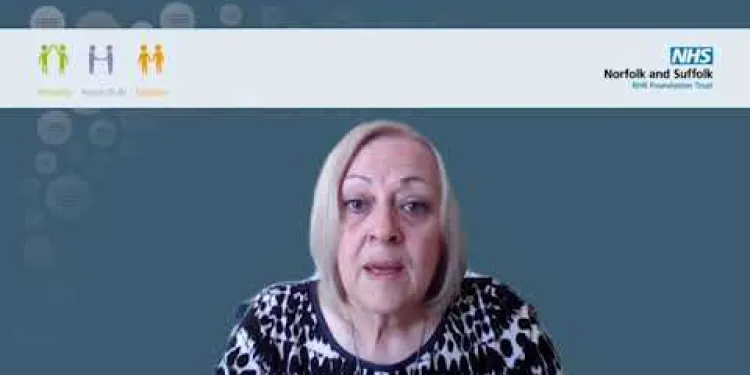
Suicide and Self Harm Prevention Strategy 2023-28
Relevance: 39%
-

What are the symptoms of postnatal depression?
Relevance: 25%
-
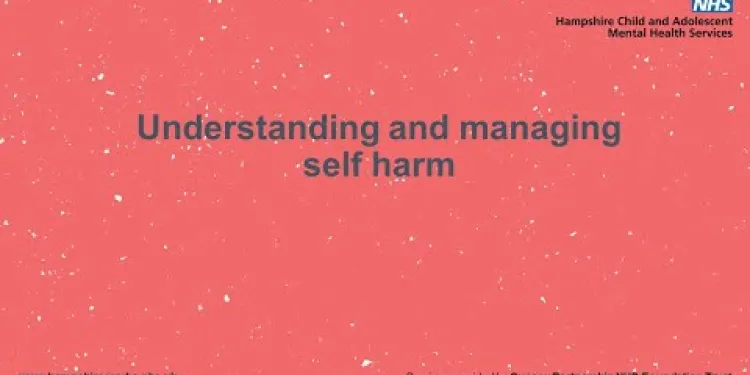
Self Harm
Relevance: 24%
-

How is postnatal depression different from the 'baby blues'?
Relevance: 18%
-

What are women's prisons like in the UK?
Relevance: 14%
-

How quickly can ketamine alleviate depression symptoms?
Relevance: 13%
-
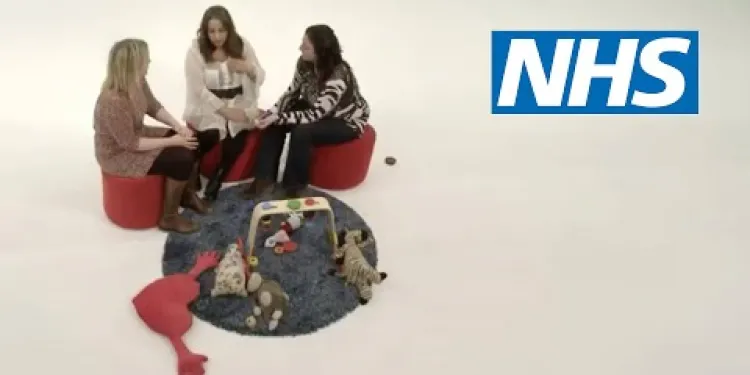
How do I know if I have postnatal depression? | NHS
Relevance: 13%
-
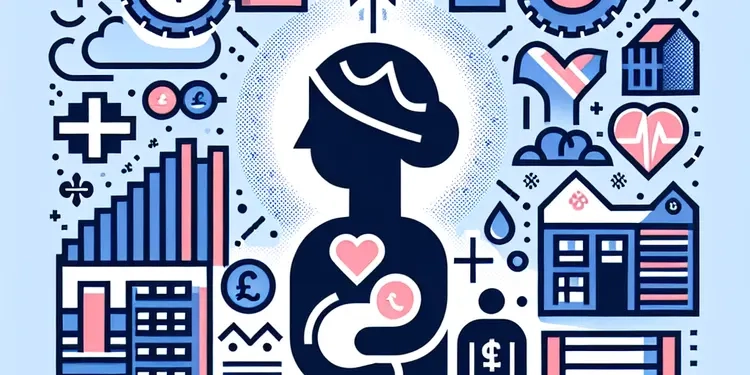
What is postnatal depression?
Relevance: 13%
-

Munchausen's syndrome | NHS
Relevance: 13%
-

What forms can honour based abuse take?
Relevance: 12%
-
Are eating disorders only about food?
Relevance: 12%
-
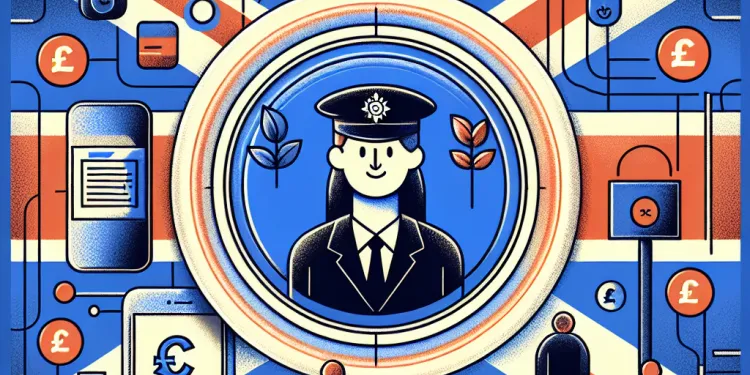
What are the signs of honour based abuse?
Relevance: 12%
-
Can eating disorders occur with other mental health conditions?
Relevance: 11%
-
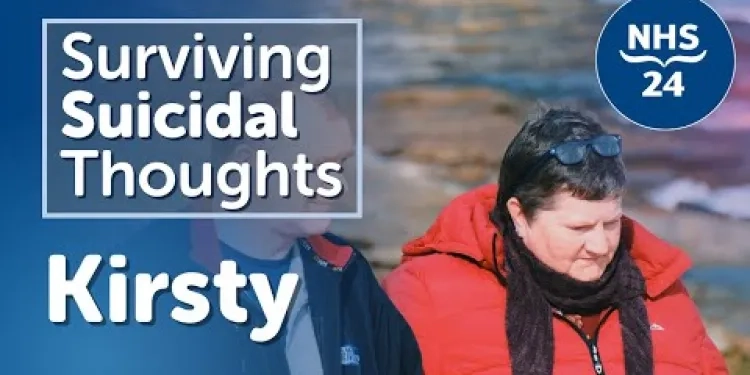
Suicidal Thoughts - Kirsty
Relevance: 8%
-
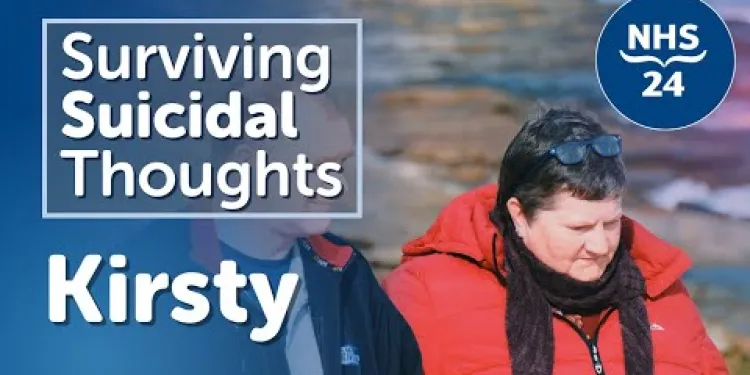
Kirsty | Surviving Suicidal Thoughts
Relevance: 7%
-

What are the common signs that a child might be a victim of grooming?
Relevance: 6%
-

Tackling Youth Mental Health: Community Initiatives and Solutions
Relevance: 6%
-

When Kids Abuse Kids
Relevance: 6%
-
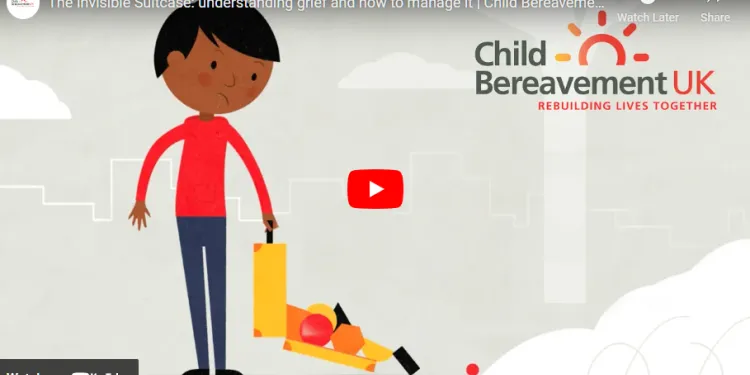
Child Bereavement
Relevance: 6%
-

Current Challenges in Youth Mental Health Services
Relevance: 6%
-
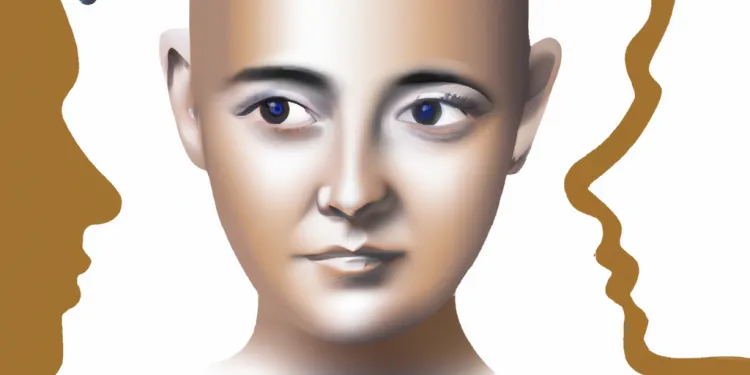
Mental Health Resources for Families
Relevance: 5%
-

Has the social media ban been successful in improving children's mental health?
Relevance: 5%
-

Treating anxiety and depression - www.slam.nhs.uk
Relevance: 4%
Talking About Self-Harm | NHS
Understanding Self-Harm
Self-harm is when someone intentionally damages or injures their body, often as a way to cope with or express overwhelming emotional distress. It is a serious issue that affects individuals of all ages and backgrounds. Understanding self-harm is crucial in providing the right support and encouraging those affected to seek help. It's important to remember that self-harm is often a symptom of a deeper problem or underlying mental health issue rather than a problem in itself.
Why People Self-Harm
There are numerous reasons why someone might self-harm, including but not limited to dealing with emotional pain, stress, or trauma. For some, it can be a way to feel in control of their situation or to release built-up tension. Others may self-harm as an attempt to communicate distress or seek help. It's essential to approach this topic with empathy and without judgment, as the reasons behind self-harm are complex and varied.
How to Talk About Self-Harm
Discussing self-harm can be challenging, both for those experiencing it and for their loved ones. When approaching this sensitive topic, create a safe, non-judgmental environment. Encourage open, honest communication and listen without interruption or immediate solutions. Show empathy, validate their feelings, and reassure them that they are not alone. It's also helpful to express your concern and care gently and suggest professional support rather than forcing it.
Getting Professional Help
The NHS provides various resources and support for those dealing with self-harm. It's crucial to seek professional help; GPs can offer initial advice and refer individuals to mental health services like counseling or therapy. There are also specialized services and helplines such as Childline, Samaritans, and Minds specifically tailored to support those in distress. Accessing these services can pave the way to healing and long-term mental health improvement.
Supporting Loved Ones
If a friend or family member is self-harming, it's vital to approach the situation with understanding and patience. Encourage them to talk about their feelings and experiences and offer your support without pressuring them. Educate yourself about self-harm and mental health issues to provide informed and compassionate assistance. Remember that professional help is often necessary, and guiding them towards these resources can be instrumental in their recovery process.
Talking About Self-Harm | NHS
Understanding Self-Harm
Self-harm is when someone hurts themselves on purpose. They might do this because they are feeling very upset. People of any age or background can self-harm. It is a sign that someone might need help with their feelings. Understanding why people do this can help us support them. Remember, self-harm is often related to other mental health problems and not the main issue itself.
Why People Self-Harm
People self-harm for different reasons. Some might be feeling sad, stressed, or have gone through something difficult. It can help them feel in control or release strong feelings. Sometimes, it's a way to show they need help. It's important to be kind and understanding because these reasons can be complicated.
How to Talk About Self-Harm
Talking about self-harm can be hard. If someone you know is self-harming, make sure they feel safe and not judged. Let them talk and listen carefully without interrupting. Be kind, show you care, and tell them they are not alone. Instead of pushing them for quick fixes, suggest getting support from professionals.
Getting Professional Help
The NHS has help for people who self-harm. It is important to talk to a doctor (GP). They can give advice and connect people with counseling or therapy. There are also hotlines like Childline and Samaritans that can offer support. Getting this kind of help can lead to feeling better over time.
Supporting Loved Ones
If someone you care about is self-harming, be patient and understanding. Encourage them to talk and let them know you are there for them. Learn about self-harm and mental health to offer the best support. Remember, getting professional help is very important, and you can guide them towards these resources for their recovery.
Frequently Asked Questions
What is self-harm?
Self-harm is when someone intentionally damages or injures their body. It is often a way of coping with or expressing overwhelming emotional distress.
Why do people self-harm?
People self-harm for various reasons including coping with distressing feelings, trying to feel in control, feeling numb or disconnected, or as a form of self-punishment.
How common is self-harm?
Self-harm is relatively common, particularly among young people. It's estimated that around 1 in 10 young people self-harm at some point.
What are the signs someone might be self-harming?
Signs of self-harm can include unexplained cuts, bruises, or burns, wearing long sleeves or pants to cover injuries, and frequent 'accidents.'
How can I help someone who is self-harming?
Listen to them without judgment, encourage them to seek professional help, and provide support in finding healthier ways to cope.
What should I avoid doing when helping someone who self-harms?
Avoid being critical, threatening, or overly emotional. Do not ignore their actions or trivialize their feelings.
Is self-harm a sign of suicide intent?
Not necessarily. While self-harm can sometimes be linked to suicidal thoughts, many people who self-harm do not intend to take their own lives.
How can I tell the difference between self-harm and suicidal behaviour?
Self-harm is usually a way of coping with emotional pain, while suicidal behaviour involves a desire to end life. However, both require professional evaluation and support.
What treatments are available for self-harm?
Treatments can include talking therapies such as Cognitive Behavioral Therapy (CBT), medication, and support groups.
Can self-harm be prevented?
While it can't always be prevented, early intervention, providing emotional support, and helping individuals develop coping mechanisms can reduce the risk.
How can I start a conversation about self-harm with someone I’m concerned about?
Choose a private and comfortable setting, express your concern calmly, and listen to them without judgment. Offer support and encourage seeking professional help.
Is it safe to tell someone I trust that I'm self-harming?
Yes, finding someone you trust to talk to about self-harm can be a crucial first step in getting the support you need.
Can family members be involved in the treatment of self-harm?
Yes, family members can be involved and can provide essential support. Family therapy can also be beneficial.
Where can I find help for self-harm in the UK?
You can speak to your GP, a mental health professional, or contact organisations such as Samaritans, Mind, or Childline for support and advice.
Is there a stigma around self-harm?
Unfortunately, there can be a stigma, which may prevent people from seeking help. Raising awareness and understanding about self-harm can help reduce this stigma.
What is self-harm?
Self-harm is when someone hurts their own body on purpose. They might do this because they are feeling very upset or sad. It is important to talk to a trusted adult or a doctor if you feel like hurting yourself.
Here are some things that can help you feel better:
- Talk to someone you trust, like a family member, friend, or teacher.
- Write down your feelings in a diary or notebook.
- Try drawing or painting to express how you feel.
- Practice deep breathing or listen to calming music.
Remember, you are not alone. There are people who can help you.
Self-harm is when someone hurts their own body on purpose. People might do this when they are feeling very upset and don’t know how to cope.
If you know someone who is self-harming, talk with a trusted adult like a parent, teacher, or counselor.
There are things that can help, like talking to someone about your feelings. Some people find it useful to write in a diary or draw pictures about how they feel.
Why do people hurt themselves?
Some people hurt themselves because they feel very sad, worried, or angry inside. Hurting themselves might make them feel a little better for a short time.
It is important to talk to someone if you feel like hurting yourself. Talking can help you feel better.
You can talk to a friend, a family member, a teacher, or a doctor. There are also special phone numbers you can call to talk to someone who will listen and help.
Remember, you are not alone, and there are people who care about you and want to help.
Sometimes people hurt themselves because they are feeling very upset or sad. They might also do it to feel like they have control over something when everything else feels out of control. Some people do it when they feel empty or not connected to anything. Others might hurt themselves because they feel like they need to be punished.
How often do people hurt themselves on purpose?
Self-harm is when someone hurts themselves on purpose. It happens a lot, especially with young people. About 1 out of every 10 young people might self-harm at some time.
How can you tell if someone is hurting themselves?
Here are some signs to watch for:
- The person has cuts, bruises, or burns on their body.
- They often wear long sleeves or pants to cover up, even when it's warm.
- They spend a lot of time alone and might not want to be with friends or family.
- Their mood seems very up and down, or they are very sad.
- The person talks about hurting themselves or feeling bad about themselves.
If you notice these signs, here are some things you can do:
- Talk to a grown-up you trust, like a parent or teacher.
- Tell the person you are there for them and that you care.
- Encourage them to talk to someone who can help, like a doctor or a counselor.
If someone is hurting themselves, they might have cuts, bruises, or burns that they can’t explain. They might wear long clothes, even when it’s hot, to hide these marks. They might also have more 'accidents' than other people.
How can I help someone who is hurting themselves?
Do you know someone who is hurting themselves? Here are some simple ways to help:
- Talk to them: Ask if they want to talk. Be kind and listen.
- Be there: Let them know they are not alone. Spend time with them.
- Encourage help: Suggest talking to a trusted adult or a doctor.
- Learn more: Find out about self-harming so you can understand better.
- Be patient: It might take time for them to feel better.
Remember, you can also talk to someone to get advice on how to help, like a parent, teacher, or a helpline.
Use easy tools and ask others for tips if you find it hard to read or understand.
Listen to your friend without saying anything bad. Tell them to talk to a doctor or counselor who can help. Help them find new ways to feel better.
What should I not do to help someone who hurts themselves?
Try not to say mean things. Do not make them feel scared or very upset. Listen to them and take their feelings seriously.
Does hurting yourself mean you want to end your life?
No, not always. Some people who hurt themselves might feel like hurting themselves, but it doesn’t always mean they want to die.
How do I know if someone is hurting themselves or thinking about ending their life?
It can be hard to know if someone is just trying to hurt themselves or if they want to end their life. Here are some things to help you:
- Talk to the person. Ask them how they feel and if they want to hurt themselves.
- Look for signs like cuts or bruises. Are they talking about wanting to be gone?
- If you're unsure, tell a trusted adult like a parent, teacher, or doctor.
Remember, it's okay to ask for help from someone you trust.
When people hurt themselves, it's often because they are trying to deal with strong, sad feelings. Sometimes, people feel so sad they want to end their life. Both of these are serious and need help from a doctor or therapist.
What can help if someone hurts themselves?
There are ways to help if you or someone you know is hurting themselves. Here are some things that might help:
- Talk to someone: Chat with a parent, teacher, or friend. Talking can make you feel better.
- Counseling or therapy: This means talking to a special person called a therapist. They can help you understand your feelings.
- Write or draw: Use a journal to write or draw about your feelings. It can help express what you’re going through.
- Exercise: Moving your body, like dancing or walking, can help you feel happier.
- Relaxation techniques: Try deep breathing or listening to calming music. This can help you feel less upset.
If you need support, there are people and places that can help you. Asking for help is a good step.
Treatments can help you feel better. These can include talking with someone, like in a therapy called Cognitive Behavioral Therapy (CBT). Medicine can also help. Being part of a group where you can talk with others can be helpful too.
Is it possible to stop self-harm?
We can't always stop it from happening, but we can help by getting help early, giving support, and teaching people how to handle tough times.
How do I talk about self-harm with someone I care about?
If you want to talk to someone about hurting themselves, here are some simple steps:
- Be kind and gentle: Use a calm voice and show that you care.
- Choose the right time: Find a quiet and safe place to talk.
- Listen well: Let them share their feelings. Don't interrupt.
- Support them: Say you want to help and that they are not alone.
- Use pictures or stories: Sometimes drawing or storytelling can help explain feelings.
- Ask for help: It's okay to talk to a teacher, doctor, or someone else who can help.
Remember, showing love and support is important.
Find a quiet and comfy place. Talk to them calmly about your worries. Listen carefully and don't judge. Offer to help and suggest they talk to a doctor or counselor.
Can I tell someone I trust about my self-harming safely?
Feeling safe is very important. If you are hurting yourself, it's good to talk to someone you trust. This could be a parent, teacher, or friend.
Here are some things to help you:
- Pick a time when you feel calm.
- Use simple words to explain how you feel.
- Write down your feelings if talking is hard.
- You can use pictures to help show your feelings.
It’s okay to ask for help. Telling someone can make you feel better and safer.
Yes, telling someone you trust about self-harm is very important. This is a good first step to get help.
Can family help when someone hurts themselves?
Can family help if someone is hurting themselves?
Yes, family can help. Family can talk to doctors. Family can listen and support. Family can help keep the person safe.
It is good for families to learn. They can read books or look online. They can also talk to other families. Families can go to meetings or groups to learn more.
Families should be patient and kind. This can help the person feel better.
Yes, family can help a lot. They can give good support. Going to therapy with your family can also be helpful.
Where can I get help if I am hurting myself in the UK?
If you are hurting yourself, there is help. You can talk to someone who understands and can help you feel better.
Here are some places to get help:
- Tell an adult you trust: You can talk to a parent, teacher, or another adult you trust. They can help you find the right support.
- Call a helpline: You can call Childline at 0800 1111. It is free, and someone is there to talk to you anytime.
- Visit your doctor: A doctor can listen to you and help you find the right help.
Remember, you are not alone. There are people who care and want to help you.
You can talk to your family doctor, a mental health helper, or reach out to groups like Samaritans, Mind, or Childline. They can give you help and advice.
Do people treat self-harm differently?
Some people might feel embarrassed or scared to talk about self-harm. It's important to know that asking for help is okay. You can talk to someone you trust, like a family member or a teacher. There are also special phone lines and websites that can help you.
- Talk to someone you trust.
- Use websites or hotlines for support.
- Remember, you are not alone.
Sometimes people feel ashamed or scared to ask for help. This can stop them from getting the support they need. We can all help by talking about self-harm and learning more about it. This can make it easier for people to ask for help.
Useful Links
Have you found an error, or do you have a link or some information you would like to share? Please let us know using the form below.
-->
This website offers general information and is not a substitute for professional advice.
Always seek guidance from qualified professionals.
If you have any medical concerns or need urgent help, contact a healthcare professional or emergency services immediately.
Some of this content was generated with AI assistance. We’ve done our best to keep it accurate, helpful, and human-friendly.
- Ergsy carfully checks the information in the videos we provide here.
- Videos shown by Youtube after a video has completed, have NOT been reviewed by ERGSY.
- To view, click the arrow in centre of video.
- Most of the videos you find here will have subtitles and/or closed captions available.
- You may need to turn these on, and choose your preferred language.
- Go to the video you'd like to watch.
- If closed captions (CC) are available, settings will be visible on the bottom right of the video player.
- To turn on Captions, click settings .
- To turn off Captions, click settings again.
More Items From Ergsy search
-

Talking about self-harm | NHS
Relevance: 100%
-

Self Harm
Relevance: 49%
-

Suicide and Self Harm Prevention Strategy 2023-28
Relevance: 39%
-

What are the symptoms of postnatal depression?
Relevance: 25%
-

Self Harm
Relevance: 24%
-

How is postnatal depression different from the 'baby blues'?
Relevance: 18%
-

What are women's prisons like in the UK?
Relevance: 14%
-

How quickly can ketamine alleviate depression symptoms?
Relevance: 13%
-

How do I know if I have postnatal depression? | NHS
Relevance: 13%
-

What is postnatal depression?
Relevance: 13%
-

Munchausen's syndrome | NHS
Relevance: 13%
-

What forms can honour based abuse take?
Relevance: 12%
-
Are eating disorders only about food?
Relevance: 12%
-

What are the signs of honour based abuse?
Relevance: 12%
-
Can eating disorders occur with other mental health conditions?
Relevance: 11%
-

Suicidal Thoughts - Kirsty
Relevance: 8%
-

Kirsty | Surviving Suicidal Thoughts
Relevance: 7%
-

What are the common signs that a child might be a victim of grooming?
Relevance: 6%
-

Tackling Youth Mental Health: Community Initiatives and Solutions
Relevance: 6%
-

When Kids Abuse Kids
Relevance: 6%
-

Child Bereavement
Relevance: 6%
-

Current Challenges in Youth Mental Health Services
Relevance: 6%
-

Mental Health Resources for Families
Relevance: 5%
-

Has the social media ban been successful in improving children's mental health?
Relevance: 5%
-

Treating anxiety and depression - www.slam.nhs.uk
Relevance: 4%


